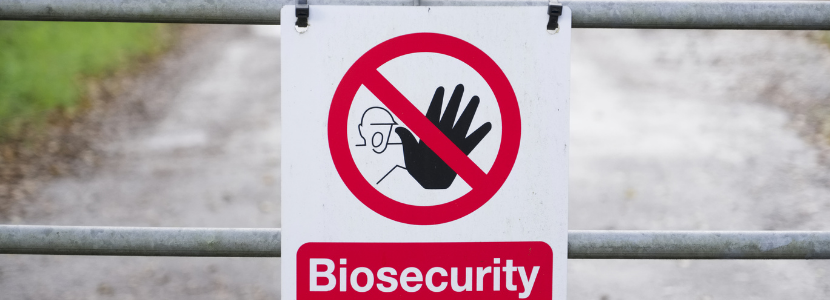The Delaware Department of Agriculture (DDA) has been warning poultry owners since January to take extra precautions to protect their birds in light of detections of highly pathogenic avian influenza (HPAI) in wild birds in the Atlantic Flyway. But after a case of HPAI was announced last week in a commercial poultry farm in New Castle County, DDA is reminding owners that biosecurity is the best way to protect bird health.
Biosecurity refers to everything that people can do to protect their flock to stop anything that causes disease away from the birds, property, and people.
Avian influenza is an airborne respiratory virus that spreads easily among chickens through nasal and eye secretions, as well as manure. The virus can be spread in various ways from flock to flock, including by wild birds, through contact with infected poultry, by equipment, and on the clothing and shoes of caretakers.
Wild birds typically do not show signs of illness, but they can shed the virus at high levels in their manure or droppings if infected. In fact, one gram of contaminated manure, enough to cover a dime, can infect one million birds.
Therefore, Delaware poultry is at risk from exposure if they have access to areas where free-flying waterfowl and wild birds are present in the environment. Additionally, if a person steps in contaminated manure while out and about, they can bring the virus back to their domesticated birds, where the birds can eat it, causing infection.
So what can you do, especially when wild birds fly overhead, dropping fecal matter all over during their migration?
- Keep your poultry away from wild ducks, geese, and their environment, including ponds, lakes, and swampy areas.
- Restrict small flocks from sharing their habitat with wild waterfowl by maintaining outdoor enclosures with solid roofs and wire mesh or netted sides. Repair any holes or tears that would allow birds or rodents to enter.
- Provide feed and water in an
TO CONTINUE READING REGISTER IT IS COMPLETELY FREE Access to articles in PDF
Keep up to date with our newsletters
Receive the magazine for free in digital version REGISTRATION ACCESS
YOUR ACCOUNT LOGIN Lost your password?

